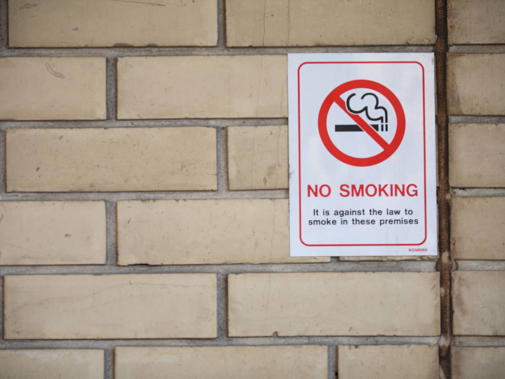National No Smoking Day takes place on 13 March and comes at a particularly relevant time this year due to the recent developments in the attempt to tackle smoking rates in the UK.
Last year the Government took one of the boldest steps over the last decade, since smoking was banned in public places, by setting out new plans to create a ‘smokefree generation’. The BMA applauded the proposal to raise the age of sale of tobacco products so that anyone born on or after 1 January 2009 will never be legally sold them. In effect, the Government has committed to raise the smoking age by a year, every year, until it applies to the whole population.
As parents as well as doctors, it is a milestone moment, both professionally and personally, to know that for a child who is now 14, the risk of all smoking-related diseases that we see daily are hugely reduced for them, their siblings, and peers. Imagine a world where all our children can grow, play, and learn in smoke-free environments, where long healthy lives are an achievable aspiration.
The Government’s pledge to create a smokefree generation is like a breath of fresh air, both literally and metaphorically. But we all need to ensure action on this pledge, otherwise it remains just words.
In the next year alone, around 280 children a day – almost 30,000 – will take up smoking. The vast majority of smokers start before they are 18 years old, and virtually all start by the age of 25.
As doctors, we see first-hand the devastating effects of smoking on patients and how this disproportionately affects the most disadvantaged people. Smoking remains the leading preventable cause of illness and death in the UK, accounting for almost 75,000 premature deaths a year in England alone.
Around two in three lifelong smokers in England will die of smoking-related deaths, with smoking causing myriad health harms, including 16 types of cancer, heart disease, chronic obstructive pulmonary disease, strokes and increases the risk of dementia. This puts a huge strain on our already overstretched NHS. In England alone, smoking is estimated to cost the NHS £2.4bn every year, equivalent to 1.6% of the health service’s budget.
Smoking is the leading cause of health inequalities and accounts for half the difference in life expectancy between the richest and poorest. And while smoking rates have fallen over the years, the difference in smoking rates between the haves and have-nots has widened. Those with long-term mental health conditions are twice as likely to smoke cigarettes, which is the biggest cause of their 10- to 20-year reduction in life expectancy.
If you are pregnant and live in a deprived area, you are six times more likely to smoke than if you live in a less deprived area. And this inequality has generational consequences – children growing up in a household where people smoke are not only exposed to second-hand smoke but are three times more likely to smoke themselves.
The proposed bill is also vital because it will also set out much-needed powers for the Government to regulate the use of vapes – something that has increased exponentially in recent years. While vapes were initially introduced as a smoking cessation aid – and do help a minority of smokers to quit – over the last few years they have become the pocket-sized villains of public health. They’re discreet, disposable, and the industry has increasingly designed them in a range of flavours and packaging to appeal to children and young adults.
It’s almost as if someone asked, ‘How can we make nicotine addiction more accessible to the young?’ The answer: single-use vapes – a gateway to addiction and an environmental disaster. Around 4% of 11- to 17-year-olds in Great Britain are now regularly using vapes and nearly half of disposable vapes are not recycled resulting in around 10 tonnes of lithium ending up in landfills each year.
However, the actions in the proposals will have limited impact if they are not accompanied by support to help current smokers kick the habit and investment into local authority enforcement. There are still 6.4 million adult smokers in the UK and yet stop-smoking services have been devastated by the 27% reduction in local authority public health funding in England since 2015/16.
There is some welcome new money for the coming year to fund services in the NHS and local authorities – for national anti-smoking campaigns, to roll out the ‘swap to stop’ scheme, and to provide financial incentives to support all pregnant smokers to quit. But this investment will need to be sustained in future years, so that smokers can be helped to quit, no matter where in the UK they live.
It is crucial that this life-saving tobacco control measure is implemented now and does not get shouted down or delayed by the tobacco industry and those with vested interests. We need the Tobacco and Vapes Bill to be tabled before Parliament soon, so that the legislation is passed into law. If not, a future parliament would have to bring the bill back, delaying legislation that is desperately needed now.
The BMA, along with many other organisations, has voiced our strong support for the legislation in meetings with the public health minister and the chief medical officer and will continue to work with our allies to call for the Government to implement these plans.
David Strain is chair of the BMA board of science and Penelope Toff is chair of the BMA public health medicine committee

